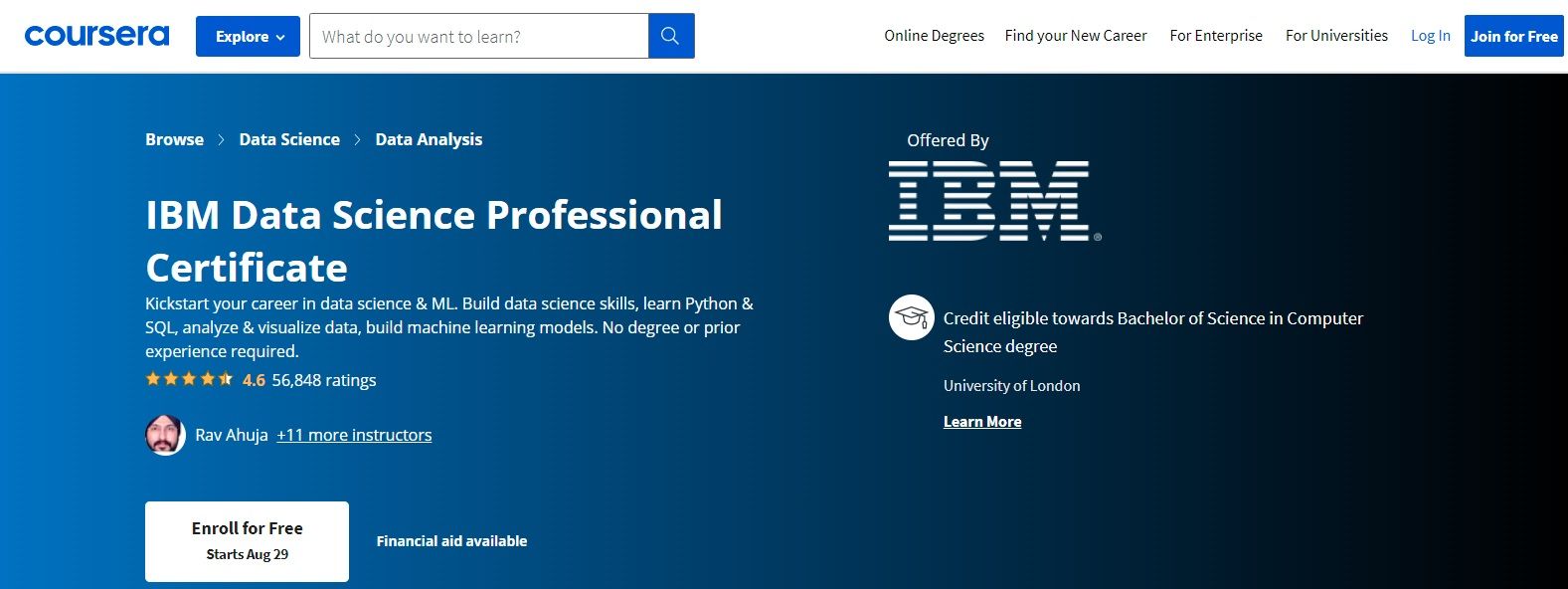It's safe to say that data currently rules the world. Today, businesses continuously need data scientists to help them analyze, separate, and extract necessary information from big data. The information that data scientists extract aids in problem-solving and innovation.
While a career in data science might interest you, your lack of a relevant degree to bolster your career pursuit may tone down your interest. Here are seven proven ways to begin a career in data science without a prior degree.
What Is Data Science?
Data science involves using analytical skills and scientific techniques to extract information and insights from raw data. Data scientists can bring information and knowledge from all forms of data, whether quantitative or qualitative. Afterward, they apply this extracted information to problem-solving, decision-making, and development strategies.
Today, data is a huge driver of the global economy, so data scientists are and will be in high demand for the foreseeable future worldwide. Starting a data science career without a degree isn't so difficult. Here are the steps you need to take to kick off your data science career:
1. Learn the Foundations of Data Science
To start a career in data science without a degree, you must have adequate knowledge of several relevant background disciplines. Data science stems from foundational disciplines such as mathematics, statistics, and computer science.
You can read books, watch YouTube videos, and attend physical and virtual classes to give you a basic understanding of these disciplines and boost your knowledge. Additionally, your knowledge of mathematics would aid you in creating machine learning algorithms and discovering patterns.
Furthermore, statistical expertise is helpful when reviewing and analyzing data, allowing you to reach reasonable conclusions. Understanding computer science will also prepare you for machine learning, an integral aspect of data science.
You can check out this YouTube video for an introduction to machine learning, for example:
2. Take Data Science Courses
The next step after learning the basics is to take specialized data science courses. These enable you to better understand how everything fits together in the field of data science. Thankfully, there are a lot of fantastic courses on the subject, providing you with the necessary information to help you understand data science and its associated careers.
You can access massive open online courses (MOOCs) from providers like Coursera, Udemy, and edX. The knowledge you gain from these courses will equip you for a flourishing career. Some courses to get you started include:
- Practical Data Science on the AWS Cloud Specialization
- Machine Learning A-Z™: Hands-On Python & R In Data Science
- Python for Data Science and Machine Learning Bootcamp
3. Obtain a Data Science Certificate/Certification From Credible Certification Bodies
You can take courses in data science without obtaining the requisite certificate. However, free courses like this are not enough if you want potential employers to take you seriously. When you obtain certificates from your completed courses, they provide evidence of your knowledge and expertise to potential employers. Some of these are:
- Certified Analytics Professional (CAP) Certification
- IBM Data Science Professional Certificate
- Cloudera Data Platform Generalist (CDP) Certification
4. Practice the Data Science Skills You Are Learning
Careers in data science are not theoretical. They involve practicals. So, while you learn in theory, you must practice these skills through hands-on experiences to help you gain and improve them.
Additionally, while many courses will provide you with practical assignments, you should still go the extra mile by taking up internships and personal work projects. You can also look for data science assignments suitable for novices in the field.
5. Build Other Technical and Interpersonal Skills
Every career requires a blend of skills, and careers in data science are no exception. Ideally, you must possess analytical, critical thinking, problem-solving, intellectual curiosity, team spirit, and communication skills.
Additionally, you must develop strong computer programming, data wrangling, and visualization skills. You should note that learning these skills takes time, and you might learn some faster than others, albeit you can only improve them through constant practice.
6. Build a Solid Project Portfolio
It would help if you tailored your portfolio to fit the exact data science career that interests you. For instance, if you're interested in machine learning, your portfolio should reflect projects involving machine learning. You can build your portfolio by working on personal projects, including building case studies that apply to specific problems affecting businesses.
You can also apply for internships in companies willing to take data science interns for short-term projects. Furthermore, you can decide to work for free for friends that are business owners and non-governmental organizations. Some organizations you can apply for internships and jobs at are:
7. Apply for Jobs in Your Data Science Niche
It would prove futile to go through all the processes of becoming a data scientist if you cannot get a job. You deserve to land a good-paying job after the rigor of learning, building skills, and obtaining certificates. It will be easier to find jobs based on your niche if you are specific about the data science career you are interested in.
You can use some design tips to improve your portfolio, prep your resume, and put them on LinkedIn and other social media sites where potential job recruiters might be. You might need to seek out potential recruiters and hiring managers, apply for unlisted jobs, and send cold emails.
8. Prepare for Data Science Interviews
Before and after applying for a data science job, you must prepare yourself adequately for data science interviews. While data science interviews are unique, with questions encompassing behavioral and technical spheres, some common job interview questions that apply across the board are also included.
Some tips to help you prepare for an interview include researching the company you have applied to and preparing to test your technical skills. Additionally, if your interview is virtual, you may want to check out these tips on how to stay focused during an online interview. You should also learn how to discuss salary ranges with your interviewers confidently.
If you are unsure how to answer questions on the spot, you can seek out possible questions and practice how to answer them so that they do not throw you off balance. You can also look for possible questions to ask your interviewer. Asking questions during the interview indicates your interest in the role and signifies your commitment to learning and improvement.
Start Your Data Science Career in Data Science Now
Data science careers are both high-paying and highly sought-after. As you don't need a degree to get into the field, the steps enumerated above will help you begin a career in data science, excel in it, and earn handsomely.


.jpg)



